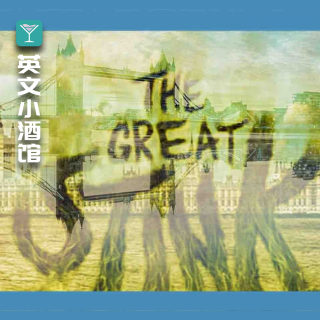人人都是播客
打开APP

11分钟

《闲话英伦》-把粪便丢到邻居家,伦敦人之间是有什么深仇大恨?
256
0
2023-01-15
+ luluxjg2 或者工号 璐璐的英文小酒馆索取【闲话英伦】系列精美文稿啦
Hi everyone, and welcome back to Britain Under the Microscope. 欢迎回来【闲话英伦】. Hi, 安澜.
Hi, Lulu, hi everyone.
So what are we going to talk about today?
As many of you know, I've recently gone back to London. And I was walking around London and I just suddenly thought it might be interesting to talk a little bit about how London developed, and in particular, how it used to smell.
How it used to smell? Yes. Okay.
So I was walking along the Thames and it got me thinking about medieval London and Victorian London and what it was like back then.
In London today is pretty clean I would say, especially considering it's a bustling metropolis.
Yes, I wouldn't say it's like the cleanest city in the world, but actually there's so many trees in London that technically according to the United Nations’ own standards, London is technically a forest.
All right. One thing that did get me is that the Thames, everyone knows the Thames泰晤士河, Thames is… I don't know if it's dirty or… the color is just it's very brown.
It is very brown. But actually it's a very clean river. The reason why it's so brown is because it's a tidal river. It's close to the sea, it’s an estuary. So lots of the mud and the soil is being washed down the Thames; and also you have the tides coming in from the sea.
So basically, it's more muddy than anything else.
So it's not contaminated or polluted, it’s just the mud.
No, no, there's lots of fish that actually are able to live in the Thames.
But you mentioned that London used to smell, when was that?
It got really, really bad in the Victorian age. And if you go back, imagine that you're walking down the street in London in the mid-19th century, the first thing you would have noticed was the mud.
So there were no like pavements?
There were pavements, but the actual main road was covered in mud. Now, most of that mud though, was not actually mud. It was dung.
From the horses?
From the horses. In the 1890s, the city's horses were producing 1,000 tons of dung a day.
Wow, they sure crap a lot.
Yes, the horses. You can imagine back then there were young children who were paid to try and scoop up as much of the dung as possible to free up the traffic, and they'll sell that dung to farmers.
Yet the other thing about the Victorian times, Victorian London, was that there were a lot of child laborers.
Yeah, and there's also a lot of poor people. In some areas, particularly more affluent areas, wealthier areas of London, there used to be men that would stand by the roadside and you would pay them. So what they would do is when you wanted across the road, they will shovel the dung out of your pathway. And they were essentially like human traffic crossings.
They had to shuffle the dung away, the manure away, so that you can walk. Otherwise you just walking on horse shit.
Pretty much, and also back then as well the reason why I said it was really, really bad was because London grew incredibly quickly. Sewage was rudimentary, and there weren't many sewers instead cesspits were used.
所以那个时候下水管道是没有的, 或者说基本上非常basic. Yeah.
And they just have cesspit for all the sewage.
And it used to get really, really bad because you had to pay people to climb in and dig out the cesspit, they were called night soil men.
Isn't it quite dangerous? I mean, it happens, especially in the rural areas, I think not that long ago. If you had this cesspit and then if people fall into it, they could really die.
A lot of them did. It was a profitable work because they would sell the waste to farmers. And there was also a rule that you could find… wherever you found you kept. So if there's any loose change or coins or jewelry that dropped in and it was yours, but it was very, very dangerous work. And also you have to pay them. So you can imagine if you didn't have that much money or you were a bit cheap, what would happen?
评论
暂时没有评论,快下载荔枝app抢沙发吧!
00:00
10:39